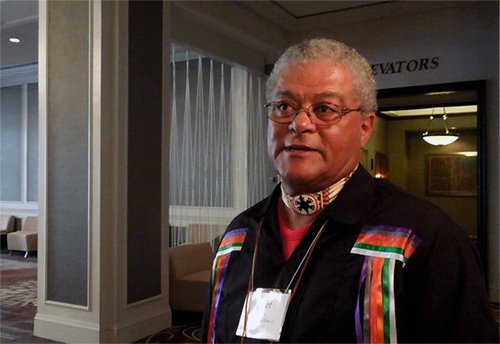For Lenape, Ancient Cultural History Lies Beneath the Sea
Once in a while the headlines carry a fascinating reminder of the coastline that once was. A scallop trawler 60 miles off the Chesapeake Bay pulls up a 22,000-year-old mastodon skull and a mysterious cutting tool. A boy picks up a 10,000-year-old arrowhead along the Jersey Shore. A nor’easter churns up a perfectly preserved spear point on a Delaware Bay beach.
Offshore Wind - Proposed Turbine Locations Loading...
Offshore Wind - Proposed Substations Loading...
Offshore Wind - Proposed Inter-array Cables Loading...
Offshore Wind - Proposed Export Cable Locations Loading...
Offshore Wind - Proposed Export Cable Corridors Loading...
BOEM Active Renewable Energy Leases Loading...
Ocean Disposal Sites Loading...
BOEM Marine Minerals Lease Areas Loading...
USACE National Sediment Management Framework Borrow Areas Loading...
USACE National Sediment Management Framework Placement Areas

Offshore Wind - Proposed Turbine Locations Loading...
Offshore Wind - Proposed Substations Loading...
Offshore Wind - Proposed Inter-array Cables Loading...
Offshore Wind - Proposed Export Cable Locations Loading...
Offshore Wind - Proposed Export Cable Corridors Loading...
BOEM Active Renewable Energy Leases Loading...
The Portal carries maps showing BOEM Active Renewable Energy Lease Areas – sites which have been leased by a company with the intent to build a wind energy facility – as well as Wind Planning Areas – sites that are being considered for wind power development – in the vicinity of the Delaware shoreline. (Click here to open full interactive map showing these areas and their proposed infrastructure locations in new window.)
As construction and in-depth exploration eventually proceeds in these areas, Coker believes it’s possible that artifacts from the ancient settlements and religious grounds that once stood there could be unearthed. He hopes any significant finds will be identified properly and afforded appropriate protections through the regional ocean planning process.
“That’s our history,” Coker said. “And I hope that history is not overlooked because it’s not the history of the current population of this country.”

